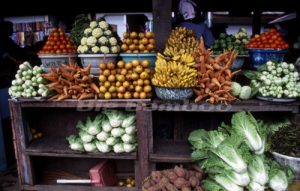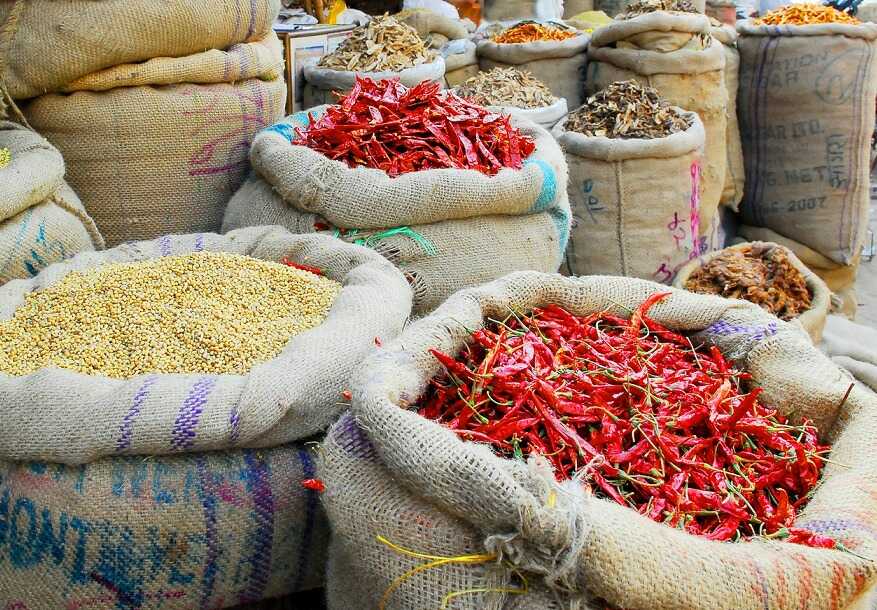The federal government has approved measures to force down the prices of food in the market.
The minister of Agriculture, Audu Ogbeh disclosed this to State House Correspondents after the federal executive meeting presided over by Acting President Yemi Osinbajo at the Presidential Villa.
LEADERSHIP recalls that the federal government last week set up a task force on food security to check the rising cost of foods in the market with a one week mandate to report back to the council on Wednesday.

Members of the Task Force include : Minister of Agriculture & Rural Development, Chief Audu Ogbeh;Minister of Finance, Mrs Kemi Adeosun
Minister of Industry, Trade & Development, Dr. Okey Enelamah;Minister of Transportation, Honorable Rotimi Amaechi;Minister for Water Resources, Engr. Suleiman Adam;Minister of Labour & Employment, Dr. Chris Ngige
According to Ogbeh, the hike in cost is “not due to shortage but high cost of transportation”as food items are generally moved across Nigeria with heavy trucks and the price of diesel which has gone up has therefore, led to increase in prices.
He listed some of the measures to include ; using railway wagons to transport food items, work with state governments to reduce delays experienced by trucks along the roads through all sort of taxes by local governments,stop mutiple taxation and green house emissions.
The minister also clarified that the government has no plans of controlling the price of food in the market but rather to checkmate the rising cost of food.
Ogbeh also said council approved a set of measures to boost production and attract investment into the Nigerian tomato sub-sector as according to him, this is a sector that has lots of farmers, in a state like Kano alone there are 75,000 farmers and so it is important to encourage them.
He also said the government approved
set of measures to encourage them both in local production as well as to attract more investment into tomato farming, processing all the way, the value chain to how tomato gets to our tables.
He explained ;These measures will include things we are doing to make sure we plant tomato round the year, things like green house equipment, making sure that they can come in without any barriers or duties. They also include the use of both tariff and non tariff measures to address the issues Nigerians are most concerned about, which is the issue of dumping, issues around quality and the standards of what we consume.
“We also approved a set of measures that will boost local production in terms of financing seeds and all the other things.Let me say that the most important thing about these set of policies is that in our approach we are going to working with the stakeholders to actually implement the polices.
“so we are going to set up an inter-ministerial committee that will work with the private sector and with different stakeholders to make sure that the implementation of the policy itself it not only done transparently but also robustly to ensure that we achieve the desired objective which is to make sure that we become self sufficient in tomato within the next one or two years.
The minister further explained that the issue of tariff is to discourage import as dumping was very central to the approval of the memo adding that there is going to be an increase in tariff.
He added ;Most definitely we are not coming down, we are going to go up. We will be announcing what the new tariffs are but clearly there is a new set of tariff that will discourage dumping, you can take that to the bank to boost local production we are interested in all the input factors that will boost production. On financing the Central Bank had been working with the tomato farmers already.
He expressed confidence that the measure taken will boost production saying the minister of science and technology is working with his ministry in terms of both the production methods and equipment in terms of the things that will boost year round production of tomato.
“Notably the green house equipment the duties on those will be zero so that the equipment will come in before now the duty on green house equipment is 20% we are removing that to make it possible for people to grow tomato all year round.
“We are going to restrict import of finished tomato products that can be produced locally, so all the products that people bring in, in terms of paste and powder and all those things will be restricted because they can be manufactured locally.
He said these policies will be rolled out right away and these are policies for this year as they are going to use tariffs and levies as well to discourage imports of tomato paste and those levies will be used to develop the local industry just like they have done in the sugar and cement industry.
He said the government is also going to restrict the importation of finished products from other ECOWAS countries where products are dumped then transported across our borders, making sure those risky products don’t go through
our land borders and if you want to import them you have to go through the sea.
“We are going to make sure that in terms of incentives which goes back to production, the Nigerian Investment Promotion Commission make sure that the production of tomato gets its pioneer status.
“We are also working on financing from the CBN interns of financing of production we are also working with the ministry of agriculture on seedling quality and so on” he stated .

